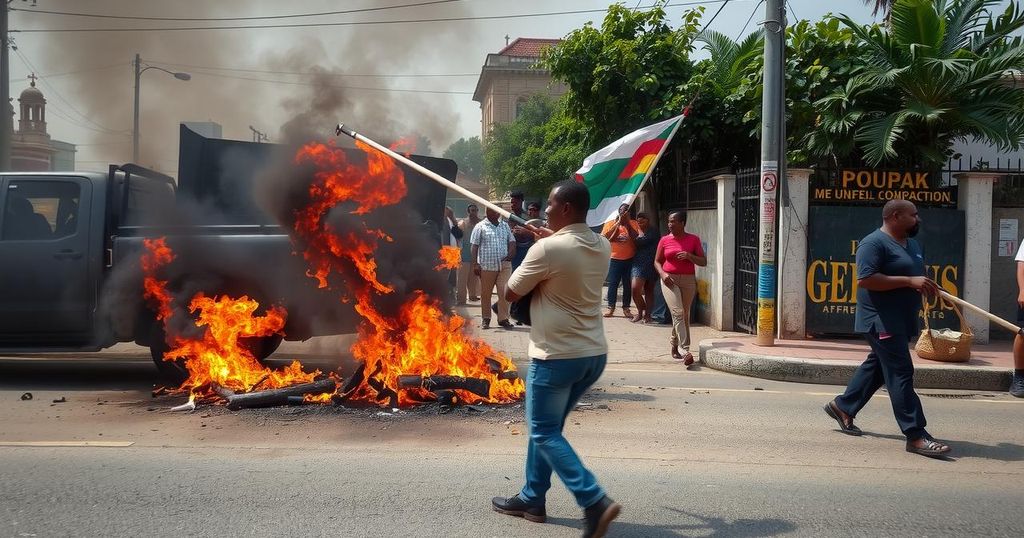Mozambique Faces Deadly Violence Amid Disputed Presidential Elections
Mozambique has witnessed severe violence resulting in at least 90 deaths amid protests against the ruling party’s alleged electoral fraud following the October presidential elections. Civil society group Plataforma Decide reported substantial unrest and detentions, particularly in Nampula, raising concerns over ongoing governmental legitimacy as the transition of power approaches.
Tragic violence has erupted in Mozambique, resulting in at least 90 fatalities following contentious presidential elections held on October 9. According to the civil society organization, Plataforma Decide, the escalated unrest reflects the deep divisions within the nation, particularly between anti-government demonstrators and security forces. The ruling Frelimo party, in power since 1975, has faced claims of electoral fraud from opposition groups following the elections that reportedly granted Frelimo’s candidate, Daniel Chapo, nearly 71% of the votes. The dissent has led to considerable civil disorder, with police reports confirming additional casualties amid recent protests.
The turmoil commenced after the election results were declared, with opposition leader Venancio Mondlane asserting that a separate count contradicts the electoral commission’s figures, indicating he received 53% of the vote rather than the reported 20%. Demonstrations have persisted despite the approaching festive season, as Mondlane has publicly commented on the inevitable continuation of public protests in his appeal for civic engagement. Police interventions have included the use of live ammunition, underscoring the increasing severity of the situation in urban centers like Nampula, where confrontations have occurred.
As the Constitutional Council prepares to affirm the election results, tension remains high. The civil unrest has prompted nearly 3,500 detentions since late October, illustrating the profound unrest and dissatisfaction among sectors of the populace. With the inauguration of Daniel Chapo set for January, the divide between government supporters and opposition forces may further escalate, posing ongoing challenges for the country’s regime stability and societal peace.
Mozambique has experienced a range of political challenges since its independence in 1975, marked by episodes of violence, corruption, and allegations of electoral fraud. The recent presidential elections, contested by opposition parties, resulted in accusations regarding the legitimacy of the electoral process, further aggravating existing societal tensions. The Frelimo party, having dominated Mozambique’s political landscape for decades, now faces critical resistance from opposition groups, leading to widespread public demonstrations. The context of the country’s struggle for democratic governance highlights the crucial intersection of politics and civil rights, particularly in the wake of disputed elections.
In summary, the violence following Mozambique’s disputed elections underscores a significant political crisis within the nation. With claims of fraudulent electoral processes and subsequent public unrest leading to fatalities, the situation remains precarious. As the country prepares for an upcoming government transition, the potential for further conflict looms, highlighting the urgent need for dialogue and reform to address the deep-rooted issues affecting Mozambican society.
Original Source: www.barrons.com




Post Comment